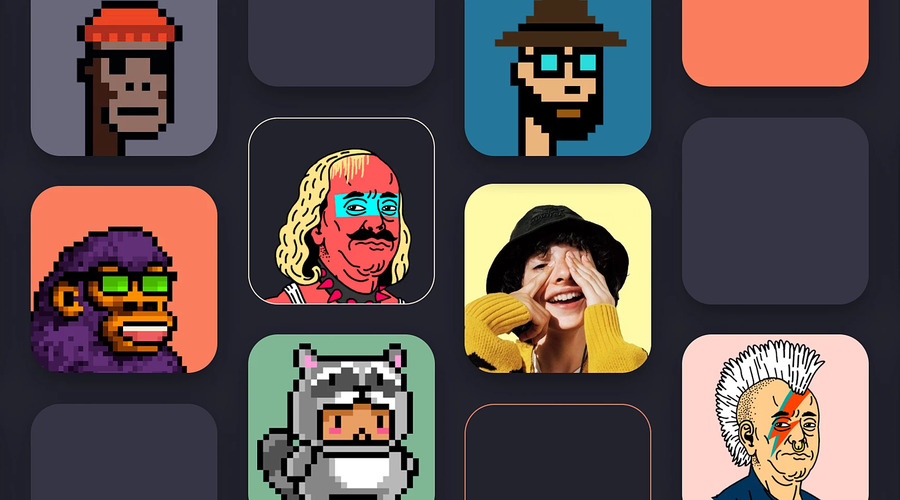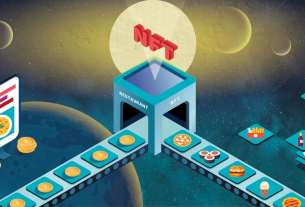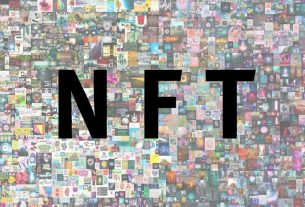Are you familiar with the world of NFTs (non-fungible tokens) and their growing popularity in the digital world? As more people start to show interest in investing in digital assets, it’s important to understand what NFT marketplaces are and how they work. In this article, we’ll take an in-depth look at NFT marketplaces, their benefits, and their role in the world of digital art and collectibles.
What are NFTs?
Firstly, let’s discuss what NFTs are. NFTs are digital assets that are stored on blockchain technology, which makes them unique and irreplaceable. They can be anything from music to digital art, videos, and even tweets. NFTs are purchased using cryptocurrency and are usually stored in digital wallets.
What is an NFT Marketplace?
An NFT marketplace is a platform where buyers and sellers of NFTs can interact with each other. It’s like an online store where digital assets are bought and sold. These marketplaces usually have a user-friendly interface that allows buyers to browse and search for NFTs that they’re interested in purchasing.
How do NFT Marketplaces Work?
NFT marketplaces work on blockchain technology, which means that each transaction is recorded on a public ledger. When someone purchases an NFT, the ownership of that asset is transferred to their digital wallet. The ownership of NFTs is permanent and cannot be duplicated or replicated, making them valuable assets in the digital world.
Benefits of NFT Marketplaces
One of the main benefits of NFT marketplaces is that they provide a platform for artists and creators to sell their digital assets. They no longer have to rely on traditional galleries or middlemen to sell their art. NFT marketplaces provide a direct line of communication between the artist and the buyer, which can lead to more profit for the artist.
Another benefit of NFT marketplaces is that they provide a new investment opportunity for individuals. By purchasing NFTs, investors can own a unique piece of digital art or collectible that has the potential to increase in value over time.
Popular NFT Marketplaces
There are several popular NFT marketplaces available, each with their own unique features and benefits. Some well-known NFT marketplaces are:
OpenSea
OpenSea is one of the largest NFT marketplaces and offers a wide variety of digital assets, including art, music, and collectibles. It also allows users to create and sell their own NFTs.
Rarible
Rarible is another popular NFT marketplace that allows users to buy and sell digital assets. It also allows users to create and sell their own NFTs, making it a great platform for artists and creators.
Nifty Gateway
Nifty Gateway is a unique NFT marketplace that focuses on limited edition drops from well-known artists and creators. It’s a great platform for collectors and investors who are looking for exclusive digital assets.
How to Buy and Sell NFTs
Buying and selling NFTs can be a bit intimidating, especially if you’re new to the world of cryptocurrency. However, most NFT marketplaces have a user-friendly interface that makes the process relatively simple.
To buy an NFT, you’ll need to create a digital wallet and purchase cryptocurrency. You can then browse the NFT marketplace and find an asset that you’re interested in purchasing. Once you’ve found an NFT that you want to buy, you’ll need to make an offer using cryptocurrency. If the offer is accepted, the ownership of the asset will be transferred to your digital wallet.
Risks of Investing in NFTs
While NFTs can be a lucrative investment opportunity, they come with risks just like any other investment. One of the main risks of investing in NFTs is the volatility of the cryptocurrency market. The value of NFTs is closely tied to the value of the cryptocurrency used to purchase them, which can fluctuate rapidly.
Another risk of investing in NFTs is the lack of regulation in the market. Since NFTs are a relatively new concept, there are currently no clear guidelines or regulations in place to protect investors. This means that investors need to be careful when purchasing NFTs and do their research before making any investments.
Future of NFT Marketplaces
The future of NFT marketplaces is looking bright as more people become interested in digital art and collectibles. As the market continues to grow, we can expect to see more innovative features and tools being developed to make buying and selling NFTs even easier.
One potential development is the use of augmented reality (AR) and virtual reality (VR) technology to create more immersive NFT experiences. This could include virtual galleries where users can view and interact with NFTs in a 3D space.
Another potential development is the use of blockchain technology to create fractional ownership of NFTs. This would allow investors to purchase a fraction of an NFT, making it more accessible to a wider range of investors.
As NFTs continue to gain popularity, we can also expect to see more traditional companies and industries get involved in the market. For example, sports teams and athletes are already starting to sell NFTs as a way to connect with fans and offer unique collectibles.
Additionally, companies in industries such as fashion and gaming are also starting to explore the potential of NFTs. Some fashion brands are already selling virtual clothing as NFTs, while gaming companies are looking into using NFTs as a way to monetize in-game items and assets.
Overall, the potential for NFTs is vast and the market is still in its early stages. By staying informed and keeping an eye on new developments and trends, investors and collectors can be a part of this exciting new world of digital assets.
Conclusion
In conclusion, NFT marketplaces are a growing trend in the digital world and offer a new and exciting investment opportunity for individuals. While they do come with risks, the potential for profit and the ability to support artists and creators make them an attractive option for many.
As more people become interested in NFTs, we can expect to see more innovation and growth in the market. By staying informed and doing your research, you can make smart investments in NFTs and be a part of this exciting new trend.
I’m a best-selling author and leading authority in the world of cryptocurrency. I have been involved in the crypto community since 2012 and have helped numerous startups and organizations on blockchain strategy. I am a regular contributor to Forbes and CoinDesk, and my work has been featured in The Wall Street Journal, Bloomberg, Reuters, and other major media outlets. In addition to writing for publications, I am also a sought-after speaker on cryptocurrency and blockchain technology niches respectively.




